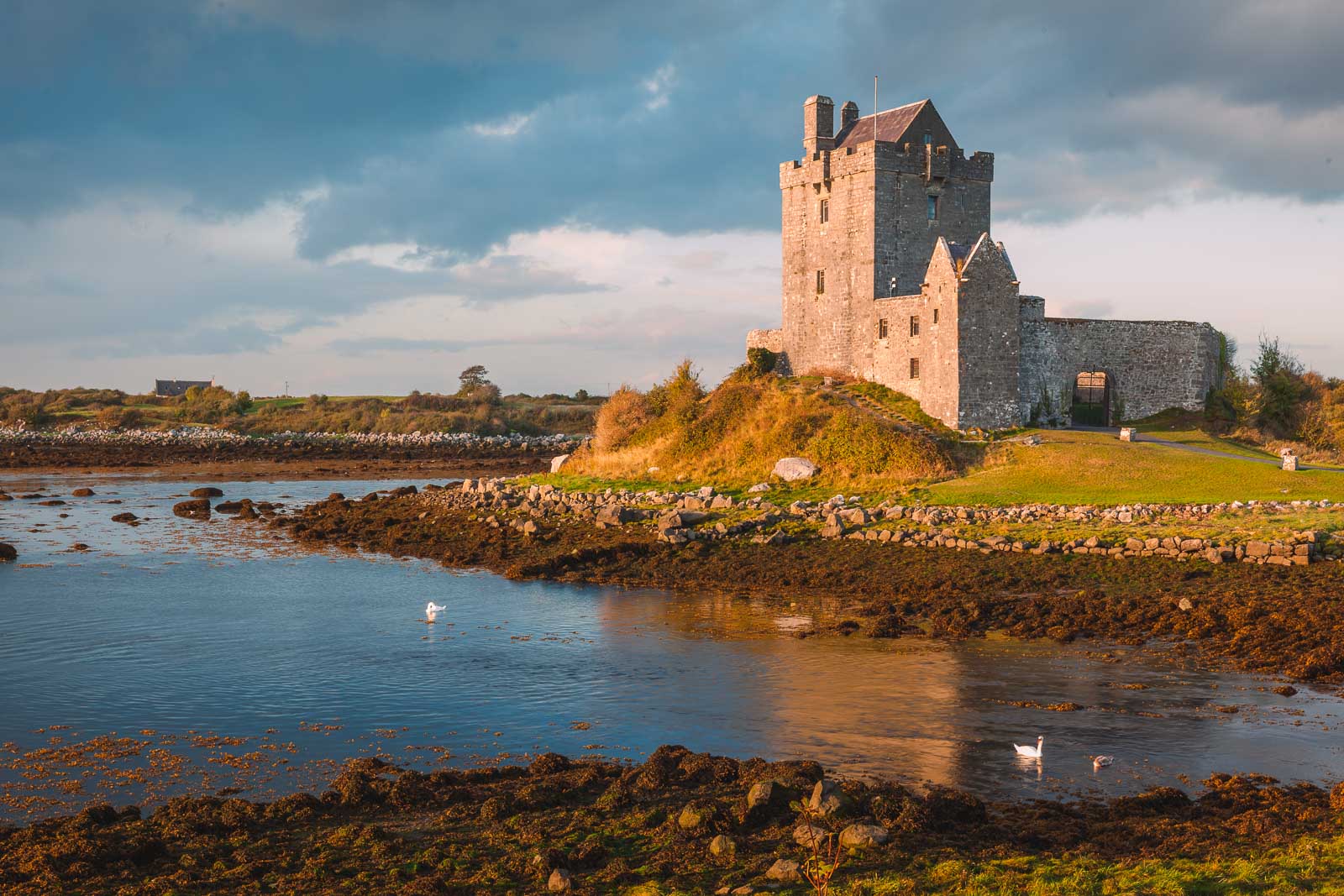The Good Friday Agreement of April 1998 put an end to The Troubles, laying the foundations of a peace process that would transform Northern Ireland into an economic success story over the couple of decades that followed.
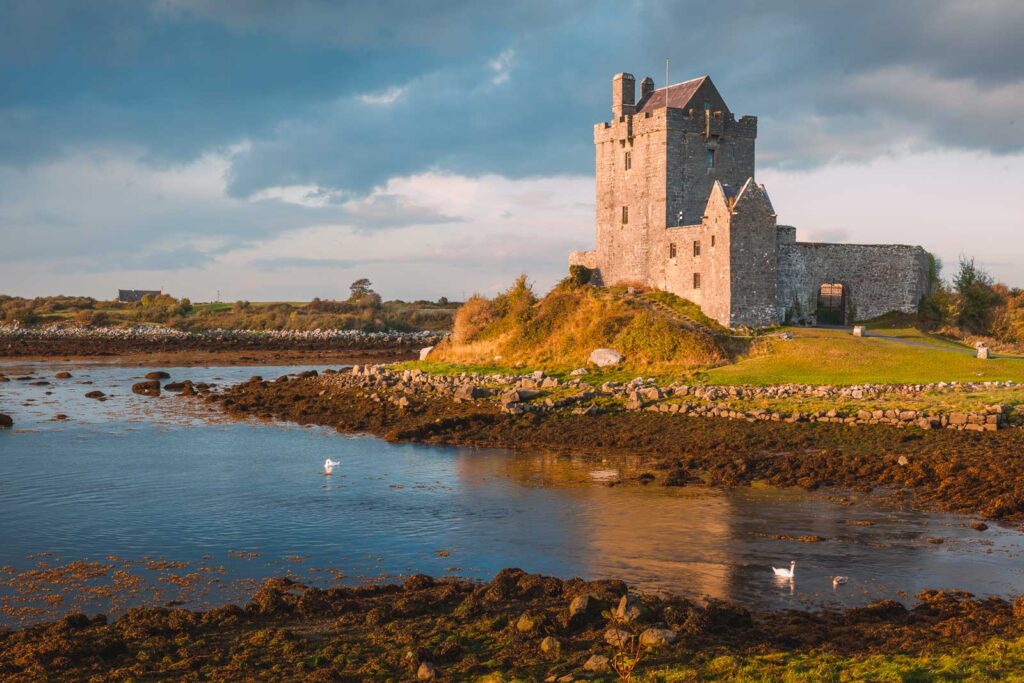
Queen Elisabeth II’s successful 2011 state visit marked the formal end of the sectarian strife that had claimed the lives of 3,500 people and destabilized Northern Ireland for decades. It also marked the beginning of a much-needed economic rebound following the global economic meltdown and financial crash.
The unionists and nationalists shared power in the devolved government in Belfast, and the economy was starting to recover. Before the end of the decade, however, a watershed moment would once again test the fragile economic, social, and political position of Northern Island: Brexit.
The UK’s exit from the European Union brought forth renewed questions of sovereignty, borders, and nationhood, raising the specter of conflict and violence yet again. In economic terms, it has brought uncertainty, forcing Northern Ireland to choose between London and the Dublin-Brussels axis. And the choice is everything but straightforward.
Northern Ireland’s border with the Republic of Ireland is the only land border the UK shares with an EU member country. Following Brexit, the openness of this border – beforehand undisputed – became the apple of discord between London and Dublin, but also between unionists and nationalists in the Belfast assembly.
And with the devolved administration rendered useless due to matters unrelated to Brexit, the door to instability had been flung open again.
Voters React – The Rise of the Non-aligned
Since the 1921 partition of Ireland, the six counties of Northern Ireland have been locked in a political tug-of-war between unionists and nationalists, with the former enjoying a numerical and political edge.
Following Brexit, an unlikely political shift occurred, with the non-aligned center reaping its benefits.
In a 2010 poll, the unionists commanded around 50% of the vote. The nationalists had a 42% share, with non-aligned voters making up a paltry 8%.
In 2019, unionists retained 43% percent, as the nationalists slid to 39%. The votes that the two opposing political blocks lost ended up in the camp of the centre ground. Parties non-aligned in the matter of unionism/nationalism enjoyed 18% support from voters.
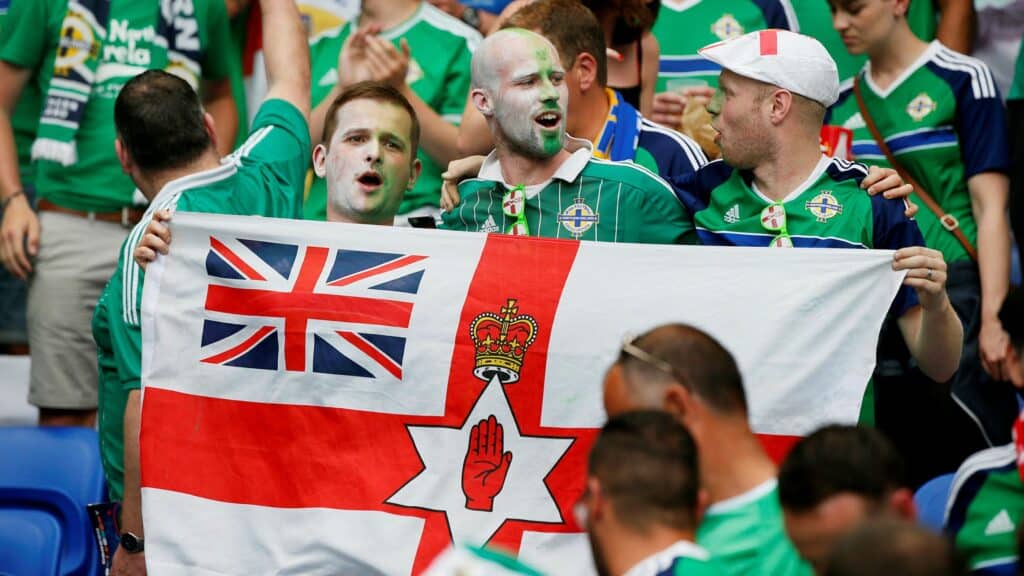
The centerpieces of the emerging political block were political entities like the Green Party, People Before Profit, and the Alliance Party.
Although both the nationalists and the unionists lost votes to the “centre ground,” the latter took the bigger hit. The elections that followed confirmed the poll results. The Ulster Unionist party had to give up a European Parliament seat to the Alliance Party. And, for only the second time, the Alliance Party secured a seat in Westminster.
Drawing conclusions from election results concerning the feelings of the population of North Ireland about their place in the UK would be far-fetched. It is obvious, however, that unionism has been on its back foot in Northern Ireland for some time.
Exactly what the rise of the non-aligned parties means for Northern Island, its economy, and its future within the UK, is anyone’s guess at this point.
2021 Stirred Up Emotions, Precipitated Politics
Two events defined Northern Ireland’s politics in 2021.
The Centenary of the Founding of Northern Ireland
In 1921, Ireland, minus the six counties governed from Belfast, broke away from the UK. These six counties have become what we know today as Northern Ireland. The event is controversial to this day as unionists and nationalists tend to view it through a radically different lens.
For the unionists, the birth of Northern Ireland is the birth of the state that effectively recognized their right to exist and cemented their place in the UK.
For nationalists, the founding of the state means the partition of Ireland. A significant part of the Irish population has remained in a state politically dominated by unionists.
The centenary is likely to inflame emotions on both sides of the unionist-nationalist divide, creating yet another opportunity for discussions about the state’s political and economic past, present, and future.
The 2021 Census
People’s religion rarely defines their national identity. Northern Island is a noteworthy exception in this sense. Although political pundits are cautious to bill Catholics Irish and Protestants British, in practical terms, that is more often the case than not.
Religion as an ethnic marker has given us a relevant picture of the ethnic makeup of Northern Ireland for decades.
In 2011, in the last census, some 48% of the population declared themselves Protestant. The number marked a 5% drop from 2001.
45% said they were Catholics, one percent more than in 2001. 7% of the population identified as belonging to a different religion or none.
While it would be imprudent to jump to conclusions concerning the demographic trajectory of Northern Ireland based on these numbers alone, the 2021 census can shed some clarity on the matter.
Although we do not yet know the religion-based breakdown of the slightly less than 2 million inhabitants of the Northern Irish state, we know that the Protestant population tends to be older than the Catholic community.
And we also know from the census that people 65 and older were 25% more numerous in 2021 than in 2011. The phenomenon is likely a result of the Baby Boomer generation reaching retirement age.
On the other hand, due to falling birth rates, in 2021, there were 9% fewer children than in 2011.
As soon as the census authorities release the data pertaining to religion, analysts will use it to pinpoint ethnic trends in the demographic flux of Northern Ireland.
2022 Confirmed Trends
The 2022 Northern Ireland Assembly Election confirmed the rise of the “centre ground.” The Alliance Party secured 17 assembly seats, nine more than at the last elections. Sinn Fein won the popular vote, retaining its 27 assembly seats. The Democratic Unionist Party dropped to 25 seats.
Thus, for the first time, a nationalist party won the most seats in the Stormont assembly, earning the right to nominate a First Minister.
How Does Brexit Factor In?
Brexit has touched every aspect of life in the UK, including the Northern Ireland Assembly Election. In line with the power-sharing nature of the government, the unionist side would nominate the deputy First Minister following the dramatic result of the 2022 election.
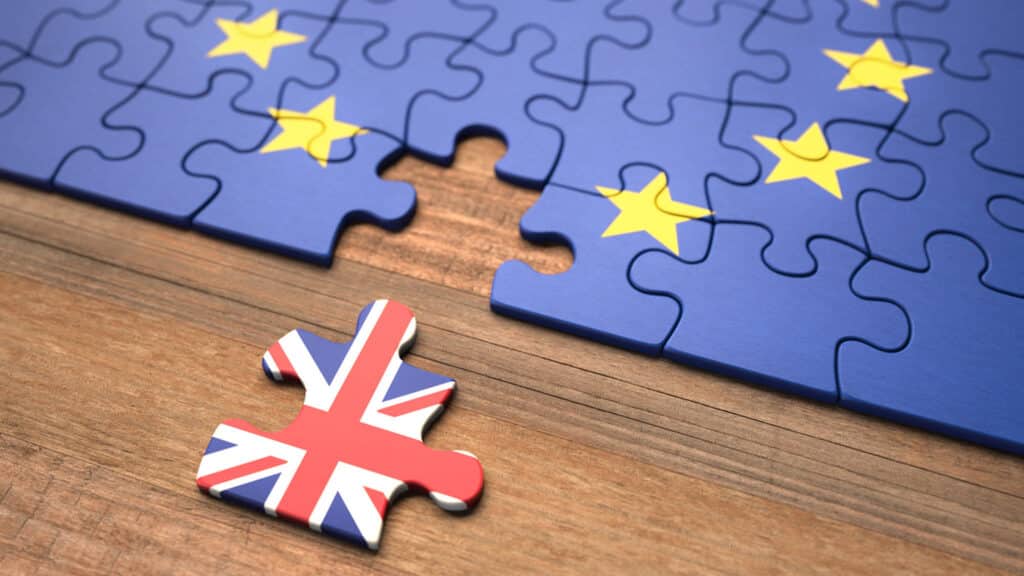
The DUP, the largest unionist party and runner-up in the election, refused to do so, however, due to its stance on the Northern Ireland Protocol.
The Northern Ireland Protocol lends a legal basis to deal with the unique customs and immigration issues arising at the border between the Republic of Ireland and Northern Ireland, which doubles as the UK/EU border. In many ways, it keeps Northern Ireland in the EU’s single market.
The DUP does not agree with the NIP as it makes Northern Ireland subject to different laws than the rest of the UK, imposed by a foreign entity. The DUP sees this as a threat to Northern Ireland’s place within the UK.
A Border in the Irish Sea
Unionists dislike the idea of being separated from the rest of the UK by what they perceive as a “border in the Irish Sea,” albeit one that manifests only on the level of a few laws meant to maintain the special status of the Northern Ireland/Republic of Ireland border.
Their concerns sum up the impact of Brexit on the economic future of Northern Ireland.
Throwing up hurdles in the flow of goods between the rest of the UK and NI while eliminating all such obstacles between the Republic of Ireland and NI can draw the state into the economic orbit of Dublin and Brussels while prying it away from London’s sphere of influence.
Despite its economic problems during the global economic crisis, the Republic of Ireland is now one of the fastest-growing economies. NI’s economic performance is comparable with the poorest regions of the UK.
Interestingly, despite its objections to the Northern Ireland Protocol, the DUP campaigned for Brexit. Sinn Fein and the non-aligned parties wanted the UK to remain an EU member.
A Referendum on Irish Unity?
Sinn Fein, now the biggest party and winner of the popular vote in the last assembly elections, has voiced its desire to hold a vote on Irish unity in the next five years.
The Good Friday agreement does accommodate such an option but sets strict conditions for it. According to the agreement, the British government will call a referendum on the status of the Republic of Ireland/Northern Ireland border should it become likely that the majority of voters want Northern Ireland to cease being a part of the UK.
With the unionist majority a thing of the past in the assembly, Sinn Fein feels that the moment may have arrived. British ministers, on the other hand, do not believe those conditions have been met. And neither do the authorities in Dublin, for that matter.
Over the long term, however, Sinn Fein may accomplish its goal of Irish unity. Recent polls show that a majority of voters feel that Irish unity will happen within the next decade.
Though voters consider a border referendum inevitable, they see Irish unification as a long-term project, not one of immediate urgency.
A separate poll confirmed that two-thirds of Irish voters see a united Ireland in 10 years.
Brexit may become a deciding factor in the question of Irish unity. According to the mentioned polls, the majority of voters in Northern Ireland do not want to leave the UK now. But among younger voters, support was higher for Irish unification. Furthermore, one in five voters named Brexit the issue that has swayed them toward leaving the UK.
If the UK meets economic and societal headwinds due to its decision to leave the EU, more people in Northern Island may decide that joining the Republic of Ireland, and implicitly, the EU, is the right choice.
For the time being, the issue of a border poll elicits doubts and caution on both sides of the border. Such a poll may be divisive, and it may reignite violence. Paramilitary groups remain active on the unionist and nationalist sides, and memories of The Troubles, though pushed further into the past, haven’t faded away yet.
Unification may also entail spending cuts and higher taxes for the South. And for now, people aren’t willing to accept such financial burdens.
The Question of Scottish Independence
According to Sinn Fein, the Scottish drive for independence from the UK has significance for the Irish unity movement.
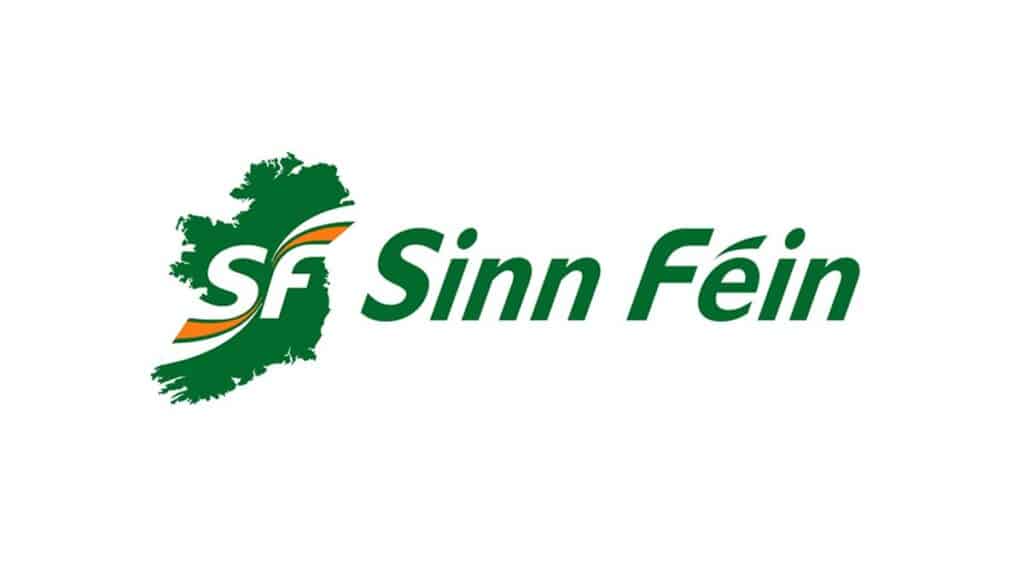
From the perspective of the Northern Ireland nationalists, the 2021 victory of pro-independence parties in Scotland means that politics across the UK are undergoing fundamental shifts.
Scotland’s independence would alter the constitutional status quo of the UK. And Sinn Fein leaders believe that it would give the Irish unification drive a significant push.
According to polls, if a referendum were held today in Northern Ireland, it would fail. And as long as the polls don’t point to a likely “yes” result, the British government is not obligated to call for the referendum.
Given the prevailing population trends, within a generation, higher birth rates among Catholics would alter the demographics enough to warrant a border referendum. Voters are mostly aware of the demographic advantage of the nationalist side, and the 2022 Northern Ireland assembly elections have confirmed the trends.
Northern Ireland’s Economic Outlook
Although it took a hit from the Covid-19 pandemic, the economy of Northern Ireland proved more resilient than that of the UK as a whole. As growth returns, it is set to rebound together with the rest of the UK.
The fundamentals of NI’s economy are solid.
- School children perform well academically, especially at the higher end of secondary education. There are some performance problems, however, at the lower end of secondary education. Thousands of NI students attend higher education in Great Britain.
- NI’s GDP is less reliant on exports and foreign investment than that of the UK. Following a period of dynamic growth, foreign investments dropped in NI during the 2020/2021 global pandemic. Most of NI’s exports go to the Republic of Ireland. In the wake of the pandemic, these exports increased by 60%.
- Renewable energy-wise, NI is in the global elite. In 2020, it derived almost half of the energy it used from renewable sources. By comparison, G7 nations only cover 11% of their energy consumption from renewable sources.
- Unemployment rates in NI have been lower than in the rest of the UK for the past 15 years. The population is young, but its rates of economic inactivity are high, suggesting that the official numbers don’t paint an accurate picture of unemployment.
- The productivity in NI trails the rest of the UK by about 20%.
Having established the baseline, economic opportunities emerge for NI in education, trade and investment, climate and energy, and collaboration and partnership.
Education
Making it easier for students to find their way into the NI labor market and expanding opportunities to cover older workers always makes sense. Some ways to achieve these objectives are:
- Focusing on apprenticeships and other non-traditional routes into the labor market.
- Setting up platforms that bring together small businesses and skill providers
- Focusing on intermediate skills and refreshing the Mathematics, Science, and Technology curriculum.
- Devising ways to attract new talent into the labor market, from older workers to students studying elsewhere in the UK.
- Addressing the performance issues at the lower level of secondary education.
Trading and Investment
The controversial Northern Ireland Protocol places NI in a uniquely advantageous position from the perspective of trading. As a member of the UK’s customs area as well as the EU single market, it can drive economic activity and growth.
In addition to that, the country has a stellar track record with foreign investors. It offers great digital connectivity and a deep talent pool.
Further opportunities for NI lie in improving support for exporters and investors while focusing on practicality and availability.
Climate and Energy
Green technologies and jobs offer plenty of opportunities for economic growth to a state like NI. Expanding such technologies and jobs into mainstream economic branches such as gas and electricity harbors considerable potential. Reusing waste and secondary materials as a resource can create a circular economy that provides self-sustaining growth and jobs.
NI already has solid technical expertise in hydrogen generation. Building on this expertise and scaling up hydrogen-related capabilities is a straightforward option for economic growth.
Partnership and Cooperation
Improving collaboration among the various branches of the NI government can optimize the economy and encourage increased coordination at the level of businesses.
A collaboration-focused approach can ensure better alignment across schools, optimizing education, higher education, and training programs.
Northern Ireland’s Economic Prospects
An accelerated growth scenario for NI assumes that Covid-19 ceases to be a significant problem, high inflation is transitory, and the post-Brexit jostling settles soon. Under this scenario, the economy grows immune to the government’s further tightening fiscal policy. Provided all these conditions are met, following a 4.2% rebound in 2022, NI’s economic growth may return to 2% by 2023, surpassing the growth rates elsewhere in the UK.
A limited growth scenario assumes that Covid-19 lingers as some of its new variants continue pressuring the economy. The tight fiscal policy of the government holds back growth, and post-Brexit problems persist into 2023. Rampant inflation takes longer to settle and only reaches a somewhat normal rate in the third quarter of 2024.
Under these pessimistic conditions, NI’s economic growth may be 1.7% in 2023, following a 3.9% rebound in 2022. Even under these circumstances, NI’s growth would surpass that of the rest of the UK. Economic forecasting is hardly an exact science. If NI seizes the economic opportunities stemming from its position and avoids sliding back into sectarian strife, its last decade proves that it can succeed economically, even in the face of adverse odds.

